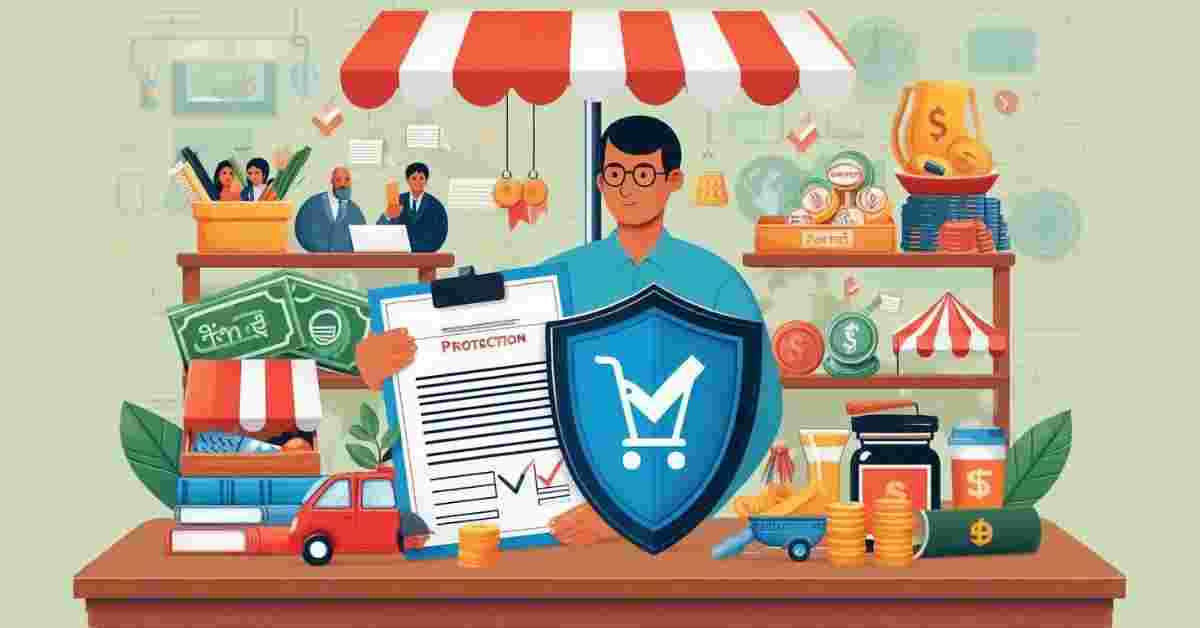Why Do We Need Consumer Rights And How Do They Protect Consumers?
Short Answer for Why Do We Need Consumer Rights And How Do They Protect Consumers?:
Consumer rights are essential to protect individuals from unfair trade practices, faulty products, false advertising, and exploitation. These rights empower consumers to make informed decisions, seek redressal, and ensure accountability from sellers and manufacturers.
Detailed Answer Why Do We Need Consumer Rights And How Do They Protect Consumers?:
Imagine this – your dad buys a brand-new fridge from a local electronics shop. It’s a big purchase, right? But just three days after installation, it stops cooling. You call the shop, and they say, “Sorry, no returns.” What now? You’re left helpless, and your money feels wasted.
That’s exactly why consumer rights exist. They’re not just rules in a textbook – they’re your shield in the market.
So, What are Consumer Rights, Really?
They are legal protections that ensure you, the buyer, are treated fairly when you buy goods or services. Whether you’re buying shoes from a mall, ordering food on an app, or getting your mobile phone repaired – you’re a consumer. And these rights make sure you’re not cheated, overcharged, or sold poor-quality products.
Now, you might wonder: “Why do we even need these rights? Can’t we just choose to shop from trusted brands?”
Well, it’s not always that simple.
Let me share a real incident:
Last year, my cousin ordered a branded smartwatch online during a festive sale. It looked perfect in the photos. But when it arrived – it was a cheap knockoff. The return window closed in two days, and by the time he realized the product was fake, it was too late. That’s when he called the Consumer Helpline, filed a complaint on the National Consumer Helpline (NCH), and got a refund within a few weeks.
This is How Consumer Rights Protect Us:
Here’s how they help, one by one:
- Right to Safety – You have the right to be protected from harmful goods. No one should sell you something that can risk your life or health.
- Right to Information – Sellers must provide you with all the correct details – price, expiry date, quantity, ingredients – before you make a purchase.
- Right to Choose – Ever been forced to buy something with a combo deal you didn’t want? This right makes sure you can say no.
- Right to be Heard – You have a voice! If something goes wrong, you can complain, and the seller must listen.
- Right to Seek Redressal – You can approach consumer courts if you’ve been cheated. It’s easier than people think.
- Right to Consumer Education – Ever seen the “Jago Grahak Jago” ads? Those are part of your right to know your rights.
But it’s not just about complaints…
These rights create balance in the market. Without them, big companies could sell anything and walk away without consequences. Thanks to laws like the Consumer Protection Act (COPRA), companies think twice before misleading advertisements or selling substandard goods.
Even during the pandemic, when masks and sanitizers were sold at crazy prices, consumer rights helped control black marketing. Awareness leads to action – and that’s how real change happens.
So, Why does it All Matter?
Because at the end of the day, it’s not just about refunds or replacements. It’s about trust. When you buy something, you deserve honesty, safety, and fairness. Whether you’re a student buying exam guides or your parents booking a travel package, these rights are your protection in an often unpredictable market.
Consumer rights make sure you’re not just a buyer – you’re a respected part of the economy.
Let’s not be silent when wronged. Let’s be informed, alert, and active – because when the consumer stands up, the market listens.

